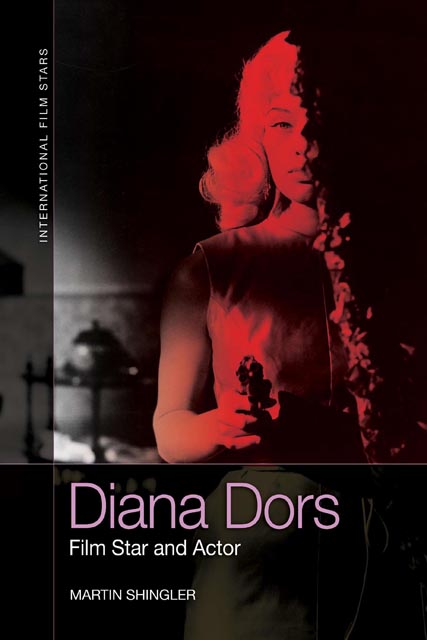9 - Perfect when poised in Steaming (1985)
Published online by Cambridge University Press: 14 July 2023
Summary
Diana Dors shared her final film with the esteemed director Joseph Losey, who made his reputation as a film director in Britain in the 1960s after escaping the McCarthy anti-Communist trials. His collaborations with playwright Harold Pinter received considerable praise, notably his BAFTA award-winning The Servant (1963), Golden Globe-nominated Accident (1967) and The Go-Between (1971), which won the Palme d’Or at the Cannes Film Festival, along with four BAFTA awards. Consequently, the American director enjoyed his greatest success as a filmmaker during the period when Dors’ film career was in the doldrums. In the early to mid 1970s, as the actress regained a foothold in the British film industry with small roles in horror films and sex comedies, Losey directed some of the world's top female stars, including Jane Fonda in A Doll's House (1973) and Glenda Jackson in The Romantic Englishwoman (1975). In 1984, however, the highly acclaimed director and under-rated film actress came together to make Steaming (1985), based on the awardwinning stage play by Nell Dunn.
Dunn came to prominence with her short story collections Up the Junction (1963) and Poor Cow (1967), notably when these were adapted for the screen by Ken Loach in the late sixties. Celebrated as a chronicler of working-class women's lives, her work came from the heart and a great deal of lived experience. Using a realist style, she combined an uncompromising frankness, a non-judgmental approach to her character's failings, a forthright feminism and a mix of strong language with more lyrical soliloquys. Steaming won the Laurence Olivier Award for Best New Comedy when staged at the Theatre Royal in London's Stratford East in 1981. When this was adapted for the big screen, Dunn collaborated with Losey's wife Patricia on the screenplay to preserve the spirit of the play.
Cast in a pivotal role, Diana Dors produced a performance for Losey that involved glamour and gravitas in equal measure, utilising her famous star image, trademark gestures and understated naturalism with a great deal of poise. From the opening to the closing shots, she quietly wove her way through the film, helping to unite a heterogeneous group of women played by very different kinds of actress.
- Type
- Chapter
- Information
- Diana DorsFilm Star and Actor, pp. 128 - 137Publisher: Edinburgh University PressPrint publication year: 2022



